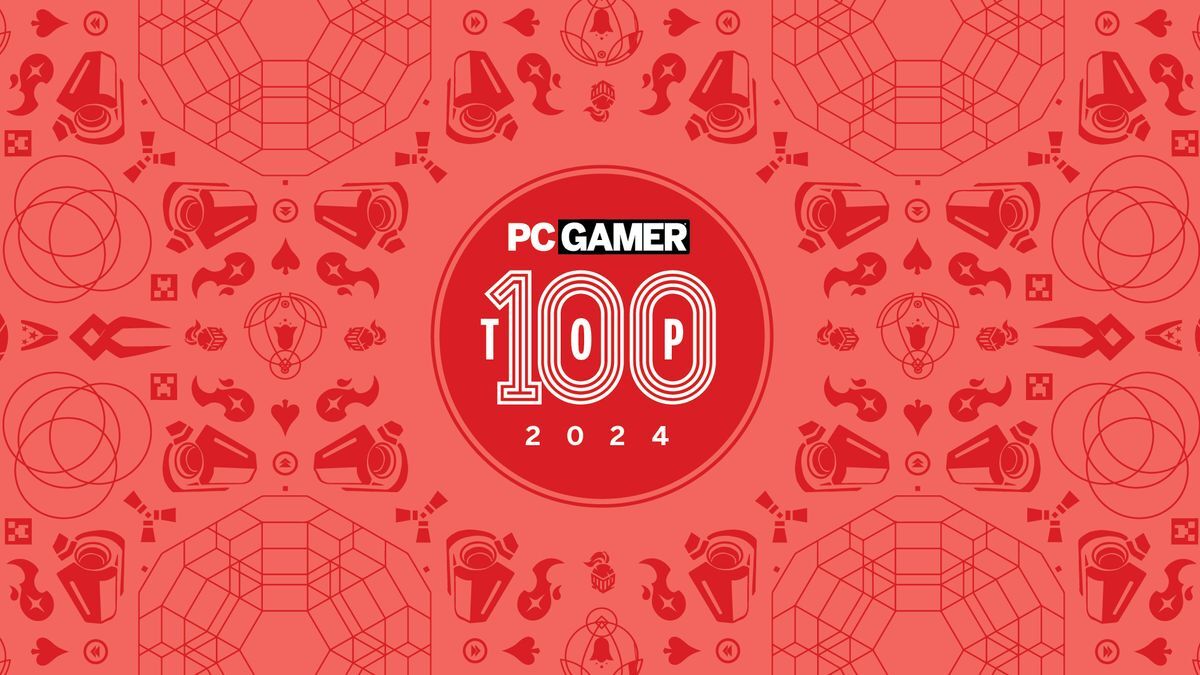Hunches and gut feelings. Dreams in waking life.
- 11 Posts
- 164 Comments

 235·1 day ago
235·1 day agoChatgpt translation of a french politician’s analysis on the matter :
Spoiler
In this election, the United States of America couldn’t choose the left because it simply wasn’t an option. Vice President Kamala Harris aligned herself with President Biden and thus approved everything he did—and everything he didn’t do, especially when it comes to the genocide in Gaza. Biden allowed it to continue in all its aspects, month after month, for over a year now. And today, he stands by as Lebanon is invaded and airstrikes occur in neighboring countries. Therefore, the Democrats are directly and personally responsible for this genocide, and it has sparked outrage around the world. How could such a powerful and wealthy country, a political model for so many, which funds and arms 70% of Netanyahu’s war, do nothing to stop this genocide? This heavily discouraged working-class voters and, more broadly, people with a strong humanitarian conscience sensitive to the suffering of others.
Trump won because Kamala Harris and this American “left” were unable to mobilize the popular electorate. One could even say they kept their distance from it to appeal to opposing voters. Yet, society showed its left-leaning pulse in referendums held alongside the presidential election. Even in states where Trump won, votes on reproductive rights resulted in victories for the “pro-choice” side. In states where referendums on wages or quality of life were held, left-leaning solutions often won. So we are witnessing a shift to the right in the United States, as in France, but it is driven by the political and media elite. The elites on both sides resemble one another, with their media outlets and pollsters, seeing society as more right-leaning than it actually is. This is devastating when the left fails to stand its ground: the right gains free rein, and the popular left demobilizes. There was no political expression available for those voting in favor of leftist measures in various states. The Harris presidential candidacy didn’t represent these views, so voters didn’t turn out. They gave up. Out of frustration, some may have even voted for Trump, but I believe this was minimal.
Harris tried to convince people that, since all the economic indicators were positive, their lives were therefore better. And here we touch on another dimension of this election’s outcome. In the U.S., as in France when President Macron boasted, we heard on all sides that things were improving: lower unemployment, rising income levels, and so on. But ordinary people, those who live by their labor, don’t see things that way. Most Americans know their wages haven’t improved. Most Americans see that they must work harder to maintain a lower quality of life, working more to earn more only to pay for things that cost increasingly more due to inflation, like food. But also the everyday essentials that go unmentioned! While we discuss taxes to denounce social security contributions, we never talk about “private taxes.” Profits and dividends are essentially private taxes on production, benefiting only a few, while public taxes benefit everyone. This is the reality. How many other costs are never counted in mandatory contributions? You’re required to insure your car, your home; you’re required to buy a certain number of things without which you could be penalized for not having. All these costs have risen!
[…] So, if you work more, maybe you earn more, but you live less comfortably and life becomes increasingly difficult. And ultimately, you live in an ocean of poverty. Even if you have a quiet home, which is your right, when you walk through the streets, you see people sleeping on the ground. You find all kinds of signs of human distress, which hurt you because you can’t pass by without noticing. Above all, you feel personally threatened by it. That’s why what just happened in the United States is a preview of what will happen in all democracies. Today, leaders shift further to the right, scapegoating immigrants, young people, and, broadly speaking, life itself, criticizing it and its risks. All while saying that people are ungrateful because things are supposedly getting better. These leaders will be increasingly punished at the polls. But the situation for those in power remains the same. Trump is a billionaire surrounded by billionaires. He still plans to cut taxes. He still plans to raise tariffs on imports, hoping to make it more attractive to produce things domestically. His form of protectionism is not the same as the protectionism we advocate for. We support “solidarity-based” protectionism, which aims to protect local production where it’s necessary. For instance, we need to protect local agriculture from imports. But in other areas, we must stop letting the market dictate everything as is happening now. We see factories closing one after another because they can’t compete globally against countries with cheaper social and environmental standards.
If Trump imposes the tariffs he has planned, prices in the U.S. will rise until domestic production fills the gaps. It’s simple: these goods will cost more. You can’t avoid them, and they aren’t made locally, so you’ll pay more. He hopes this will push Americans toward local products. Let’s hope there are any to turn to. Personally, I don’t believe the U.S. can rebuild a productive base strong enough to compete with “the world’s factory” in China and the rest of Asia. This goes for us in France, too.
Let’s draw some lessons from this. First, for democracy to thrive, there must be real debate on programs, not just on personalities. When all candidates say the same things, there’s no space for real discussion. This is why it all ends in insults and a pitiful spectacle, as we saw in the U.S. There must be genuine policy choices that engage society’s intelligence rather than relying on rejection, hatred, and the discrediting of others. Two worldviews are facing off, in the U.S. as elsewhere. And society understands this. Is it “everyone for themselves,” or is it “all together”? We need this discussion, but in the end, we need to make choices based on concrete, opposing options—not just endless repetition of the same ideas.
We must also draw a strategic lesson: society needs alternative choices. That’s why we’re fine with being called the “radical left.” It’s not how we, see ourselves, but at least people understand we are proposing something different. Otherwise, people turn away from voting or lean increasingly to the right, looking for scapegoats. The second lesson is that good or bad economic numbers alone don’t convince people to vote a certain way. When people are told the numbers look good, it’s really just a way of saying they have no choice but to vote to keep things the same. People know that under capitalism, their lives are unlikely to improve, but their environment could be entirely devastated. And for those with bad numbers, it’s a way to say nothing can change because of that, as we see in France. Good numbers, bad numbers—the conclusion is always the same. But if we keep things the same, we’re heading for disaster.
We can’t win against the “every man for himself” mindset unless we explain why “all together” is essential. An election should be a vision for the future. The world is entering a dangerous phase. At each step, we must reflect on what has just happened and learn from it. The next time challenges come, we must reflect and make informed choices.
Kamala Harris, like President Joe Biden, bears personal responsibility for the genocide against Palestinians. They armed those responsible and stood by when they had the means to stop this catastrophe. Harris and Biden are responsible for once again mocking the public, providing none of the answers that American workers expect from a Democratic Party that wants to be the U.S. left. Americans need to break free from this stifling two-party system that prevents progressive choices. I regret that Bernie Sanders and the left of the Democratic Party continued to carry water for Kamala Harris and that Party.
Everywhere, we need the courage of our convictions. We must stand firm. Even if we lose because we couldn’t convince others, at least we fought. The worst thing is to lose both our ideas and the elections. That’s why we must learn a lesson from this. And broadly, everyone who wants to break with today’s system must take this lesson seriously—politically, socially, ecologically. We must all believe it’s crucial to stand firm, without compromising to seem more acceptable to our opponents, as Kamala Harris did. This world is unbearable for the majority. A different future must be possible for life to be bearable. And we must take this personally. We must act, not just let events unfold without doing anything, shedding tears before and after—tears of fear, then tears for what we’ve lost.
Democracy and fighting fascism doesn’t happen once every X years

 20·3 days ago
20·3 days agoPublishing a roadmap for bugfixing a released dlc was not on my bingo card

 8·4 days ago
8·4 days agoIt’s not really gameplay but : not rendering me deaf when launching the game for the first time, games need to have their volume down to 50% by default

 1·7 days ago
1·7 days agoYes I believe they have received buffs on blood moon maps

 4·7 days ago
4·7 days agoThe Finals changed some in-game props into jack o lanterns you can throw at opponents to deal damage, and the maps have a spooky variant with spiderwebs and whatnot.
Phasmophobia is running a Halloween event amidst its console release, but it’s mostly just playing the map to make a counter go up, kind of disappointed.
Deep Rock Galactic has the usual lobby reskin, and extra cosmetics, always fun to go back to !
Interesting thing from the jobs descriptions:
Privacy Guides is fiscally hosted by MAGIC Grants, a 501©(3) public charity.
MAGIC Grants is a public charity that provides undergraduate scholarships for students interested in cryptocurrencies and privacy, supports public cryptocurrency infrastructure, and supports privacy.
There’s only a few that have managed to be praised despite being so far detached from previous iterations, I can only think or Prey, Spec Ops

 5·14 days ago
5·14 days agoIndeed but being able to dispose of something by selling it does not automatically means you owned it
The real Yggdrasil was the forests we cut along the way

 2·17 days ago
2·17 days agoOh that’s funny, it’s the second time I get ‘caught’ lol
It’s a french punctuation rule (I’m francophone), which differs from the usual english one where no space is needed before the exclamation mark. basically if any symbol takes the full line height, we add spaces before and after. It’s fun to figure out if someone is francophone or not by the way they type.

 23·19 days ago
23·19 days agoI think either of these will be regarded as works of art :
- Alan Wake
- Disco Elysium

 1·25 days ago
1·25 days agoThank you !!

 14·25 days ago
14·25 days agoTop 10 list to save you a click from 10 to 1
- Doom 1993
- Stardew Valley
- Balatro
- Half Life 2
- The Witcher 3 : Wild Hunt
- Persona 5 Royal
- Minecraft
- Elden Ring
- Disco Elysium
- Baldur’s Gate 3
(Sorry btw I was too lazy to make a numbered list and order them correctly)

 23·28 days ago
23·28 days agoDon’t get your hopes up though:
The new studio currently comprises 12 people, including some who worked on the original game and on its cancelled sequel, and former staff from Bungie (Destiny, Halo) and Rockstar (Grand Theft Auto, Red Dead Redemption).
[…]
Longdue has not specified exactly who from Disco Elysium’s original team is working on its new game, though it has said that Rostov and Kurvitz are not involved.

 22·29 days ago
22·29 days agoPosting it as a separate comment because I feel like the most important info is in there:
Q:
What are the reasons for your call for a strike?
A:
On September 17, management announced that it wanted to impose 3 days of face-to-face work per week. Many of us have organized our lives around work from home, allowing us to reconcile our professional and personal lives, reduce our travel, manage a disability or be a caregiver. This method has also compensated for the overload due to the non-replacement of colleagues.
Despite this, no guarantee has been given regarding future negotiations, especially after the failure on profit-sharing, revealing a purely formal social dialogue and management focused on stock market indicators rather than employee commitment.
We are therefore calling on Ubisoft employees to strike on Tuesday, October 15 in the afternoon to defend the following:
- Work from home: preserving work-life balance and employment.
- Salary: catching up with inflation and salary scale.
- Social dialogue: real negotiations.
- Profit-sharing: a 13th month as compensation.

 1·29 days ago
1·29 days agoQ:
Is there a way/effort to enlist colleagues from other countries? Or does the legal framework elsewhere make such action too risky?
A:
We represent French employees. But there are efforts being made in other countries to unionize. However, this is not our responsibility and we prefer not to go into this subject.
Q:
What was your position on the death of The Crew 1 video game, and the vague statements of the guy who said “players are going to have to get used to not owning their games anymore”? Were there any attempts to prevent the servers from being disconnected (which eventually happened)? In any case, it caused such a stir that Ivory Tower recently said they were going to implement an offline mode for The Crew 2 and Motorfest.
A:
We, who are also gamers, see, like you, that the pressure from the financial markets leads to decisions that do not serve the interests of players.

 1·29 days ago
1·29 days agoQ:
Isn’t the return to on-site work just a disguised layoff plan, which would fit in with the wave of massive layoffs that the sector has been experiencing for some time? A little off topic: There are rumors of a buyout by Tencent (or at least a significant increase in their stake in Ubi’s capital), how do you feel about it internally?
A:
Decisions concerning the structuring of shareholding at Ubisoft are completely beyond the control of employees. We have no information on this subject.
Q:
How are the rumors of a buyout by Tencent perceived internally? Is the atmosphere the same as during the rumors of Vivendi’s purchases a few years ago?
Given the recent critical success of the latest Prince of Persia (I don’t know if the game was profitable though), isn’t this a sign for Ubisoft’s management to trust its internal talents more to make more original games rather than wanting to jump on any trend (nft, service games, etc.) even if it means alienating certain developers and consumers?
A:
Employees follow the media on the buyout rumors, which worries them. Employees and ourselves are attached to the collective work of Ubisoft, which is a flagship of the French video game industry. We work to defend employment and our working conditions.
What is new within Ubisoft is the union fact, which gives employees a voice and concrete action to defend their rights.












And the following are statements from before Nov 5th, before the election results:
Spoiler
When both candidates say the same thing, it creates a stifling environment. It becomes impossible to discuss topics that neither candidate has brought up—such as the ongoing genocide against the Palestinian population and the invasion against the Lebanese people. This is an issue that provokes a reaction and deep thought globally. But in the United States, whether it’s Trump or Harris, both support the genocide. The current Biden administration, being Democratic, provides weapons and financial backing to Netanyahu, supplying nearly 70% of Israel’s arms. Occasionally, they make hypocritical statements about ensuring humanitarian aid access, while funding the genocide and destruction.
Trump and Harris both support the genocide and give unconditional, if differently worded, support to Netanyahu’s government. They also agree on handling capitalism, with neither willing to tax windfall profits of corporations. They both avoid addressing public health issues, among other critical matters. Although Democrats at least recognize environmental issues, Harris has boasted about the strong oil industry performance under Biden’s administration. There’s little space to discuss anything outside a narrow range of topics, which is why U.S. election campaigns inevitably become personality battles and insult matches.
There’s a lot here that we recognize because we see it at home, too. I find it amusing when the media says U.S. campaigns are “too personality-driven,” or that “the arguments are rudimentary,” or that polling institutes are always wrong! Isn’t that also the case here? We have dominant narratives that are just as basic, comparable to Trump’s anti-immigration rhetoric. We also have racist discourses that rival Trump’s, and our polling institutes are often off the mark, misleading the public about voter intentions. There is a reflection of the American system in the French system: Kamala Harris and the Democrats resemble the Socialist Party and Le Monde, while Trump is like the National Rally, Eric Ciotti, and Le Figaro.
Right now, we’re being cornered to take a position on the U.S. election. Recently, I watched the morning news with two French left-wing representatives. Both were asked to choose between Trump and Harris. But let’s remember: we are not U.S. voters. If we take a position, it’s to clarify our general political priorities. What matters to us in this election? The campaign has been reduced to very little, offering no choice on major issues impacting North Americans’ daily lives or those of people living under U.S. dominance. These issues, tied to critiques of capitalism, are unaddressed. Inflation erodes the income of the poorest Americans as much as it does in Europe or France, yet this is never discussed. Nor is anything said about what will be done for industrial areas where factories have closed and everyone has been laid off. What will come next? No one knows, except that both Trump and Harris favor tariffs to revive their industry—a strategy unlikely to bring them to a competitive market position with China, which is why both are anti-China. A Democratic leader went so far as to admit, “There’s no market solution to compete with China.” In other words, both support war.
I’ve just outlined how both candidates agree on key issues that we strongly oppose. I read that Harris is “the lesser evil” compared to Trump. I reject that notion. The lesser evil is still evil. As Hannah Arendt said, “Those who choose the lesser evil forget that they chose evil.” I’d add that Harris, by being complicit in genocide and pro-capitalist policies, has alienated working-class voters in swing states.
There is, however, a crucial difference between them on an individual liberty: Trump opposes the right to abortion, while Harris supports it. This is a fundamental difference—not a minor detail—since it affects the personal freedom of half of humanity: all women. If I were in the U.S., this would weigh heavily in my voting decision. They are similar but not identical. One might wish for a Harris victory, though it would not bring substantial change. However, a Trump loss would stir greater turmoil in the U.S., as he would not accept defeat. For us, that might be positive. A divided U.S. might reduce its global interference, including support for regimes like Netanyahu’s and others, especially in the Asia-Pacific.
If I were a voter in a swing state, I would vote Democrat. But in a Democratic state where their majority is assured, adding more votes wouldn’t increase the Democratic electoral college count. In such a case, breaking the stranglehold might be worthwhile, and I would consider my options. If in a solidly Democratic state, I’d vote for Jill Stein, the Green Party candidate, because their platform closely aligns with our goals here.
Let’s briefly review the American Greens’ proposals, which neither Harris nor Trump supports. They advocate for free public education throughout life. They propose abolishing student debt and medical debt, and strengthening a social security system that doesn’t exist there. They support heavy taxes on large fortunes and corporations—something we just voted for in our National Assembly. They call for a minimum wage indexed to inflation and productivity growth, which we push for at each parliamentary session, and a guaranteed income above the poverty line. They would make housing a human right, place the pharmaceutical industry under public ownership and democratic control, and replace the two-party exclusionary system with a multiparty democracy. This includes proportional representation in all legislative elections and the abolition of the death penalty. They also champion gender liberties and reducing migration pressures by ending crises that force people to migrate—a statement nearly word-for-word from our party.
[…] In any case, the United States is a far more fractured and disjointed country than it may appear from a distance. And if this country is fractured and disjointed, it’s not because of the crudeness of the campaign rhetoric. That crudeness is actually a result of the fact that, since the candidates say essentially the same things on major issues, they can only confront each other through personal attacks. They both say the same things because both defend the same global order, the same widespread presence of NATO, the same dominance over the world, and the same aggression toward anything that resists them. Why with such force and violence? Because they are defending a system that has torn apart American society. The American people are better than the political figures who represent them. Sooner or later, the collective spirit of grassroots America, as it manifests when mobilized for major causes, will reemerge.
But today, the American public is being deeply influenced by the far right, much like public opinion in Europe, especially in places where there is no way to express an alternative viewpoint outside the two-party system that dominates and blocks any broader perspective.